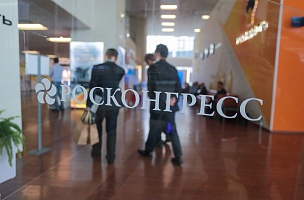A series of reports covering the influence of the COVID-19 pandemic on transportation and tourism, the development of new trends in technology, and a number of possible postcrisis scenarios has been published on the Anticrisis Plan: Global Best Practices portal and the ROSCONGRESS.ORG Information and Analytical System.
A review of UNWTO’s reports on the impact of COVID-19 on transportation and tourism looks at two World Tourism Organization publications: ‘COVID-19 — a global insight on travel and tourism impacts’ and ‘Supporting Jobs and Economies Through Travel & Tourism: A Call for Action to Mitigate the Socio-Economic Impact of COVID-19 and Accelerate Recovery’.
Experts have noted that, given the unprecedented and rapidly developing nature of the crisis, it is extremely difficult to assess the impact of COVID-19 on international tourism. In a previous report, UNWTO estimated that the number of international arrivals of tourists would fall by 20–30% in 2020, that is to the levels of 5–7 years ago, entailing losses of USD 250 to 400 billion in international tourism. The industry’s global revenue is estimated at USD 1.5 trillion.
An overview of Deloitte’s research project ‘The World Remade by COVID-19′ looks at various possible developments in the crisis caused by the coronavirus outbreak, covering the next year and a half to two years. The most favourable scenario postulates that the united actions of global leaders, including building awareness among populations and exchanging best practices, will be able to stop the spread of the virus earlier than anticipated. Emerging from the critical phase will occur within the next few months, but even in this scenario the pandemic will lead to long-term negative economic consequences.
Adopting a more negative outlook, the virus will return to the countries where it now appears to be under control. At the same time, other countries that are facing difficulties in the fight against COVID-19 will discover that their efforts are having little to no effect.
Over the next three to five years, public—private partnerships could be strengthened in order to deal with new challenges, the authority of social networks and tech giants is set to grow, and the shift in the global sphere of influence from west to east will continue, as China and other East Asian countries prove more successful in dealing with the outbreak. The spread of COVID-19 could lead to social unrest, increased isolationism in state policy, and the widespread surveillance of people and their movements using special technologies.
A summary of an article published by the World Economic Forum on ‘10 technology trends to watch in the COVID-19 pandemic’ outlines a number of tech trends seeing accelerated development as a result of the COVID-19 pandemic. These include digital payments, telemedicine and robotics. These and other technologies can help to mitigate the spread of coronavirus, support business, and make society more resilient in the face of the pandemic and other threats.
The materials can be accessed in full on the Anticrisis Plan: Global Best Practices portal, as well as in the ‘Analytics’ section of the Information and Analytical System.






